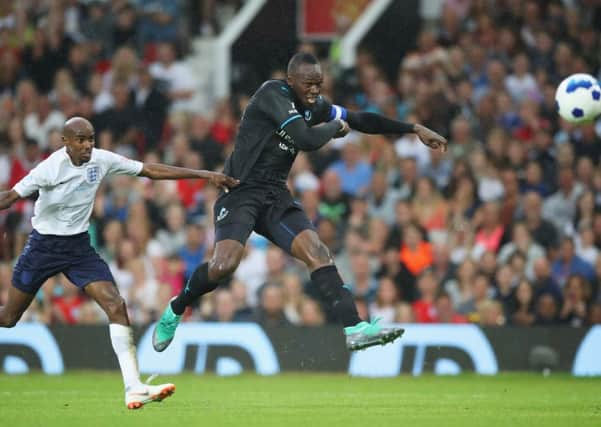Jane Bradley: The sad end of this sporting life


It is Saturday morning. All over the country, right as you’re reading this, thousands of young people will be practising sport.
You may be a parent, grandparent or friend of one of the dedicated young sportsmen or women. You might have picked this up to help while away the time waiting for them in a leisure centre in Edinburgh, or Stirling, or Thurso - while your offspring completes lengths of the pool, swings in circles from a pair of gymnastics rings, or practices their double-handed backhand. You might be waiting by an ice rink in Dundee, watching sit spins and spirals or at the side of a rugby pitch in Melrose while your son or daughter launches themselves into a ruck.
Advertisement
Hide AdAdvertisement
Hide AdWhile some of these young people are doing all of this entirely for fun or fitness, others will harbour dreams of a sporting career. A proportion of those will dedicate their childhood and teenage years to trying to get to the top of their profession, while an even smaller number will actually make it to competing at a high level. For the ones who do make it to the Olympic Games, it is all too easy to assume they have made it, reached their final goal.
Yet a first-person account from a retiring athlete made me think hard this week about the difficulties of what happens next. Most sports people – with some exceptions, showjumper John Whitaker is still contemplating the Tokyo Olympics in 2020, when he will be 64 – reach the pinnacle of their careers by their early 30s. The question is, then what?
In a week when retired sprinter Usain Bolt looks set to sign for an Australian football club, Edinburgh-based Team GB Olympic swimmer Lizzie Simmonds published a blog post about retiring from competitive swimming aged 27.
In a piece called “How to be a real person”, Simmonds – who hit the headlines earlier this year after tweeting about an exchange with a woman in a swimming pool in the capital who had told her that she was so good she should consider joining a club team – writes of the struggles of moving from a regimented and focused daily life into the real world.
“Lots of athletes get into trouble when they leave elite sport, and it’s not too difficult to understand why. After being identified as ‘Lizzie the swimmer’ for so long, I’ve just morphed into ‘Lizzie the normal person’,” she wrote.
“If, like me, an athlete has often defined themselves by their successes in sport, then it can be difficult to surrender their hard-won identity in the search for a new one.”
She has a point. We see them, standing there on the podium, medals around their necks and assume that they have it made. Yet managing to merely financially survive in competitive sport is a feat in itself – for many without lucrative endorsement and sponsorship deals, there is little room for financial planning for the future.
Athlete Jesse Owens, who scooped four golds at the 1936 Olympics, famously defended his decision to move into racehorse training for the money after retiring from running, saying: “I had four gold medals, but you can’t eat four gold medals.”
Advertisement
Hide AdAdvertisement
Hide AdIn addition, the psychological impact of carving out a life doing the thing that you love – and the only job you have known – then finding it has come to an end cannot be easy and sport as an industry is beginning to realise that. Sport Scotland employs dedicated ‘performance lifestyle advisers’ to help athletes through transitions, while Abertay University in Dundee two years ago appointed the world’s first ever professor of duty of care in sport.
There are, of course, those who can keep on competing. Golfers, particularly, have access to a lucrative Masters tour, through which many can earn a decent amount of cash up to retirement age. But for long jumpers or javelin throwers, the spectator dollar is not likely to be as forthcoming.
Some retired athletes manage to move on to teaching, training or reporting. They are elite athletes, with decades of experience in a very specific field. Yet, even for those who are able to remain within the sector in some way, life is never quite the same.
While coaching – or joining sports-related organisations, or becoming commentators or pundits – might mean a chance to keep on wearing the trainers, kicking the ball, wearing the skates or at least talking the talk, it is simply not the same as actually taking part. Which is why many former athletes move into something else entirely.
Back in the days when rugby was non-professional – this only changed fully in 1995 – players would have kept “normal” jobs the whole time, which they could easily step back into after their sporting career came to an end. Many were dentists, lawyers or, like Scottish rugby player John Jeffrey, a farmer.
In other sports, George Foreman is probably almost better known now for his cooking grill than his boxing success, while British hockey player Crista Cullen, who came out of retirement to take part in the Rio games in 2016 after winning gold in London 2012, now works in conservation in Kenya.
My sympathy is with Simmonds as she transforms into a “normal person”. It can’t be easy.
